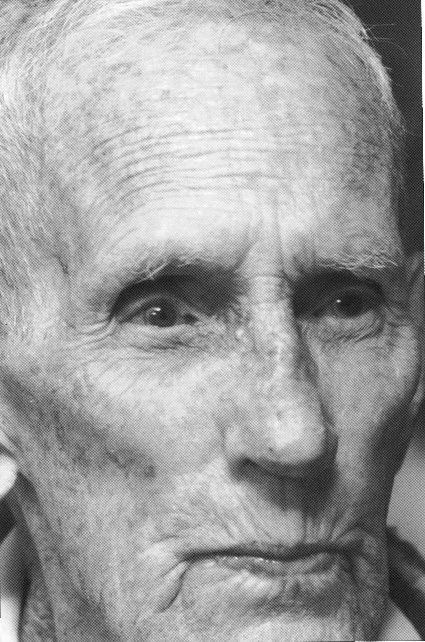
Arthur Stanley Brown … is he one of Australia’s most prolific serial killers? Perhaps he doesn’t remember.
STEPHEN Millichamp is the man who wouldn’t grow up. A successful businessman with a list of associates that included television personalities, champion footballers, actors and stylish young women; he had a lifestyle that many would envy and few could emulate.
As he approached middle-age, some of his friends would tell the well-known ‘party boy’ to slow down, but Millichamp was never the sort to turn his broad back on a good time.
While many of his mates were to marry and settle into family life, the former pub bouncer turned trendy hotelier and cosmetics king, saw no reason to change. ‘Steve just wouldn’t leave the ‘80s,’ was the way one of his friends put it.
Even earlier, back in the 1970s, when Millichamp was a bouncer at the Croxton Park Hotel, he was determined to have a good time – usually in the company of young women.
‘He was a big, friendly sort of guy,’ recalls the then manager of the ‘Croc’, John Chalker.
‘He always had a smile on his face and wouldn’t hurt a fly. Back then he was a part-time actor, and he would say he was in movies to impress the girls.’
Millichamp was cast in bit parts and because of his size – about 198 centimetres and 120 kilograms – was often asked to play a policeman in films such as Mad Max. He appeared in more than 30 television dramas including Blue Heelers, Phoenix, Power Without Glory and Homicide.
Perhaps his insatiable desire for fun was fuelled through getting a second chance at life – he lost a kidney to cancer when he was about 30 – or it might have been that spending some of his working life connected with nightclubs helped mould his personality into an Australian version of Hugh Hefner.
The expensive alterations he ordered to his $2.5 million, ivy-covered, double-storey house in South Yarra were purpose built for parties – whether big business functions or more intimate affairs.
His lavish cellar was designed with a unique feature, a glass wall giving an underwater view of the swimming pool. Upstairs were three bedrooms – the main with the mandatory water-bed – and a solarium. Two spare bedrooms were always made up for various house guests.
Neighbors say he was warm and generous and his parties were legendary. They recall there was never a shortage of young women drawn to the indulgent atmosphere and luxurious lifestyle.
But the boy from an English migrant family, who had come a long way from St Albans in Melbourne’s battling western suburbs, worked hard to maintain all the signs of success. He was one of Australia’s most successful salesmen, working for years for the Le Tan group, before branching out on his own.
‘He was more than just a party boy,’ one friend said. ‘He is a smart bloke who earned everything he owns. He likes a good time, but he also knows when it is time for business.’ By the late 1990s Millichamp was flying. He had survived cancer and a downturn in his nightclub investments. He had clawed his way back to wealth through his booming cosmetics interest, Coral Colours, and his investments in a travel agency and tour business.
It must have seemed that he had cleared all his hurdles and was finally looking at an easy run. But there was to be one more the big man didn’t see.
IT WAS early Sunday, 21 September, 1997, when Millichamp cruised into the Imperial Hotel in Chapel Street, South Yarra. It was his habit to mix business and pleasure by going to the hotel he part owned to check out his investment – and the patrons.
Almost immediately he spotted two well-known Melbourne celebrities, Channel Nine’s Eddie McGuire and Ten’s Stephen Quartermain. Although the pair were working at competing networks they had been mates for years, having worked in the same newsroom in the 1980s.
A few hours earlier, they had been to a Channel Ten reunion and then moved on to the Imperial for a quiet chat. They were both sober – McGuire usually swears off alcohol during the football finals, to ensure he is at his best for the Footy Show and his other media commitments.
The two had been part of Melbourne’s celebrity ‘Rat Pack’ in the 1980s and were regulars at the best nightclubs. Managers would give them drink cards – allowing them to drink for nothing for as long as they liked. It was considered good for business to have celebrities at the bar.
But their priorities had long since changed – long-term relationships and work commitments meant they rarely partied as they once had.
Millichamp moved to join McGuire and Quartermain, knowing he would be welcome. While the three were not close friends, they had all been involved in raising more than $1 million for children suffering from cancer, through the Trevor Barker Foundation.
The hell-raising hotelier and McGuire also shared a passion for Collingwood. Millichamp was a sponsor of the club and McGuire would soon become its president.
Also in the bar were two attractive young women. One was considering throwing in her job as a sales representative and approached McGuire and Quartermain for some ‘career advice’, as it was later described.
Both men are often approached with offers and requests for help. It is one of the reasons they have become more selective in their social lives.
The two women, in their twenties, had been friends from university days in Sydney. ‘Lyn’ moved to Melbourne and her friend, ‘Paula’, worked in an art gallery in Sydney.
But Paula had flown to Melbourne for a few days and the two had decided to go clubbing. Lyn, 24, had been to dinner in St Kilda with her boyfriend, a man in his late 30s, and another couple. Around 11pm Paula joined them and the two woman went to the Sunset Strip nightclub before getting a taxi to the Imperial.
Millichamp, then 40, knew the women; they had been to his home previously. He provided them with free liqueurs until the hotel closed.
Around 3am McGuire and Quartermain left. Seeing the two women and Millichamp looking for a taxi, they offered them a lift. Lyn was later to tell police it was fun to be in McGuire’s car for the short trip, because people recognised the TV host and waved at them.
When they arrived at Millichamp’s home, all five went in.
The two television journalists played pinball briefly and then left, unaware they would be dragged into a sordid and long-running chain of events, that would link their names with allegations of rape and drug abuse, even though they were innocent parties.
What was to happen in the hours after Quartermain and McGuire left is still open to dispute, but what can be established is that both women lay down on the waterbed and that Millichamp had sex with Lyn.
She was later to claim it was rape, that she was asleep and in her drowsy, drugged and drunk state, initially believed her sexual partner was her boyfriend and not Millichamp. He was to say it was consensual sex and that she protested only later.
The three people in the bedroom all have varying recollections, and it is impossible to examine the veracity of their claims. But this story will not examine what did – or did not – happen in the bedroom but, rather, how the legal system dealt with the allegation of rape and question why Millichamp was charged with serious criminal offences, even when the police investigators, and the trial judge, had serious doubts as to whether the prosecution should have been launched at all.
WHEN Lyn left the South Yarra house with her girlfriend, sometime after 6am, she was in tears. She went by taxi to see a barrister friend, who lived nearby for advice, and, eventually, went to the sexual assault clinic at the Royal Women’s Hospital to be examined.
When Lyn was initially interviewed by police one recorded in notes that she was uncertain whether she wanted a criminal investigation to proceed.
A day later she made a full statement to police and Millichamp was to become the target of a rape investigation.
Police raided his house and wanted to question him, but on the advice of his solicitor and long time friend, Joe Katz, of the South Yarra legal firm of Kalus Kenny, he refused.
Almost six weeks later, Millichamp provided a ten-page statement to police, outlining his version of events, but he still refused to submit to a formal interview.
Police interviewed Quartermain and McGuire as witnesses – in that they could confirm that the two young women had visited Millichamp’s house. Despite such a slight connection, word soon leaked that the two television ‘personalities’ were somehow involved with a rape investigation, even if there was no suggestion they had done anything more than offer an acquaintance a lift home.
McGuire and Quartermain were annoyed and embarrassed that their names were linked to an alleged sex crime, albeit on such a flimsy pretext. In an industry where public perceptions are paramount, even the suggestion of sexual misconduct can cripple careers. Millichamp contacted McGuire and apologised for unwittingly dragging him into the controversy.
It took police almost eleven months to complete the investigation. They finally contacted Millichamp to say no charges would be laid. Investigators believed there was insufficient evidence to justify charges. Put simply, they felt it would be a waste of court time to launch a pointless prosecution.
Under police procedures, the decision not to prosecute was reviewed twice before the investigation could be officially closed. Detective Sergeant John Laird wrote to his superiors saying the case against Millichamp was weak and that no charges should be laid.
Detective Senior Sergeant David Martin wrote that a prosecution ‘would fail’. He also suggested that part of Lyn’s version of events was ‘anatomically impossible’.
Detective Inspector Robert Hodgkin went even further. ‘Before a prosecution for an offence of this nature is commenced, there must be sufficient admissible, substantial and reliable evidence that a criminal offence known to the law, has been committed by the offender.
‘After evaluating all the evidence, I am of the opinion there is insufficient evidence to proceed, as there is barely a prima facie case. It is possible we would be prosecuting an innocent man. It would be a useless expenditure of public funds.’
In August, 1998, Millichamp was told he was in the clear. There would be no charges. But when Lyn was told the case was closed she was also told that she could approach the Office of Public Prosecutions to have the investigation reviewed.
Four months later, on 8 January, 1999, she rang Prahran police and said, yes, she wanted the decision reviewed.
In August, 1999 – almost two years after the event – an OPP solicitor from the sexual offences section contacted police, with an instruction to charge Millichamp with rape.
Police contacted the OPP and argued there was insufficient evidence to justify the charges. On 19 January, 2000, the Director of Public Prosecutions, Geoff Flatman, QC, responded.
He said a senior Crown Prosecutor had reviewed the case and believed there was ‘reasonable prospect of conviction and that charges should be laid’.
Flatman chose his words carefully as the guidelines on when charges are laid state: ‘A prosecution should not proceed if there is no reasonable prospect of a conviction being secured.’
He said the prosecutor believed, ‘Cases much weaker than this are run before juries regularly.’ He maintained that charges should be laid. Police did not share his enthusiasm.
Acting Superintendent Colin Moffitt wrote: ‘I do not see that we have any option but to proceed. I have advised Command of the situation and recommend a change to the Code of Practice for Sexual Assault, so that the “appeal” to DPP is removed.’
In March – a full 30 months after the alleged incident – Millichamp was told he would be charged with rape. To make matters more clouded, some police notes had been lost and material relating to the case purged from the police computer.
MILLICHAMP’S expensive lawyers assured the devastated businessman the case was certain to fail and he should not worry. But the former bouncer knew the combination of sex and celebrities would inevitably bring media attention and public fascination. He was embarrassed for himself and his high-profile friends.
McGuire and Quartermain, who have both refused to publicly comment on the case, were to be drawn into the mess even though it had nothing to do with them. They were not even in the house when the incident occurred and yet, every story published on the court case, from Newcastle, Sydney, Adelaide and Melbourne, all mentioned their names.
Millichamp liked having celebrity friends. Now he was to feel the downside of fame. This time the part-time bit actor was going to be the star of his own real-life court drama.
His previous roles in Australia’s Most Wanted, The Trial of Ned Kelly and Carson’s Law, could hardly have prepared him for the legal battles ahead. While he was happy to act in Prisoner, he didn’t want to be one.
His defence team felt he was likely to be committed for trial at the Magistrate’s Court and decided to keep its best material for the County Court hearing.
Before the trial, the defence, led by Phil Dunn, QC, argued that the case should be thrown out, claiming the whole prosecution was hopelessly compromised. Trial Judge, Frank Dyett, ruled the case should go ahead, but he made it clear to both legal teams that he viewed the case as questionable, at best.
He said that he had doubts about the credibility of Lyn’s girlfriend who was on the bed at the time of the alleged rape. ‘I have read all the cross-examination of this particular witness, and I am certainly not impressed by her evidence.’
He observed, ‘I can understand why the senior police officers took the view that it was probably a waste of public money going on with it … The point I’m trying to make is that it’s a flimsy Crown case for a start.’
He went on to say he knew police believed it was possible that no offence was committed and the prosecution was ‘a useless expenditure of public money’.
‘I see nothing wrong with any of those statements. I tend to agree with them,’ Judge Dyett said.
A jury of seven men and five women was selected. A defence legal team usually try to stack a jury with women aged over 50 in the belief they are more likely to ‘judge’ the complainant as well as the accused. In this case, the jury members’ ages varied from mid-20s to mid-50s.
Over 20 years the criminal justice system has moved to try to protect people who might be victims of sex crimes. Politicians, judges and lawyers have tried to develop a system where victims are no longer reluctant to come forward because of the fear their credibility will be attacked.
Brutal cross-examination, where the victim’s sexual history is exposed in open court, has slowly been removed as a standard defence tactic. But in the Millichamp case, Judge Dyett accepted a submission that Lyn’s sexual past with the accused was a valid area to be examined.
In the end, there were two people on trial – Millichamp and the young woman who said he had sexually assaulted her.
THE defence had to make sure the jury did not believe Lyn – and they were prepared to do anything, within the law, to destroy her credibility.
She had moved back to Sydney, but the defence hired a private investigator to follow and photograph her. They used a psychiatrist to try to examine her state of mind.
A less than flattering profile of the woman was compiled – but, ultimately, not submitted in evidence.
In cross-examination, Phil Dunn asked her again and again about her relationship with Millichamp.
She admitted she had been to the house before, but repeatedly denied she had been in his bedroom.
Then came the killer blow. Dunn produced a glossy, colour photograph of Millichamp, Lyn and an unidentified woman, on the waterbed in his house. It was taken in 1996 – the year before the alleged rape.
The three people in the photo appear to be happy. Millichamp is in a state of undress and looks pleased with himself. He wears the smile of a trophy hunter. Lyn is lying on the bed wearing a red bra and possibly nothing else. She is laughing, while the second woman is topless and smiling at the camera.
Lyn said she could not remember the photograph being taken. ‘I can only assume that I was absolutely out of my mind,’ she told the court.
Copies of the photograph were given to the judge, the prosecution and every member of the jury. For the alleged victim, her humiliation was now complete.
Quartermain and McGuire were called as prosecution witnesses. Their evidence may have made headlines, but it added nothing to the case. The defence called no witnesses to give evidence, knowing there would be no need. The prosecution’s case was now terminally damaged from self-inflicted wounds.

Arthur Stanley Brown … is he one of Australia’s most prolific serial killers? Perhaps he doesn’t remember.
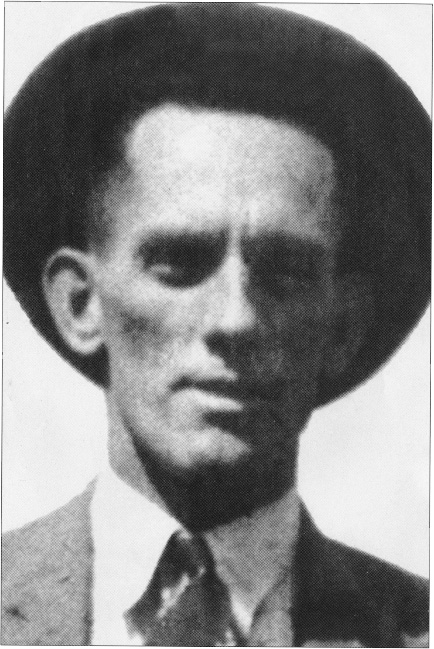
If the hat fits. A young Arthur Brown in his trademark hat …
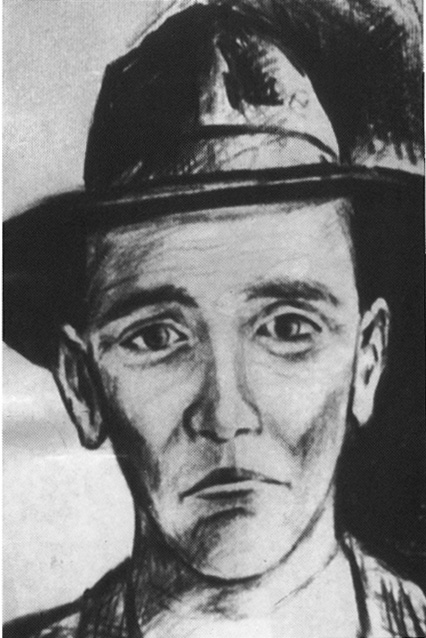
… and a sketch of the man who abducted Kirste Gordon and Joanne Ratcliffe in Adelaide in 1973. Case unsolved.
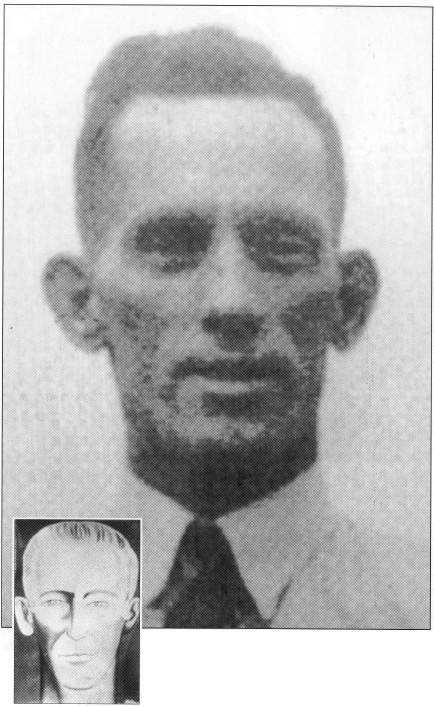
An eerie similarity? Brown and a police sketch of a suspect in the abduction of the Beaumont children in 1966.
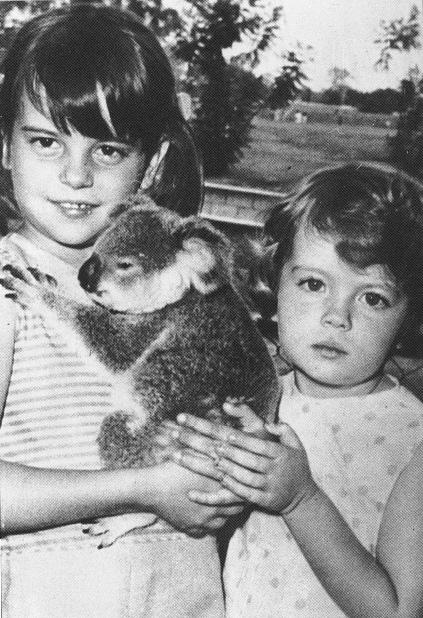
Judith (left) and Susan Mackay … abducted and murdered near Townsville in August, 1970. Brown was charged, but will never stand trial.
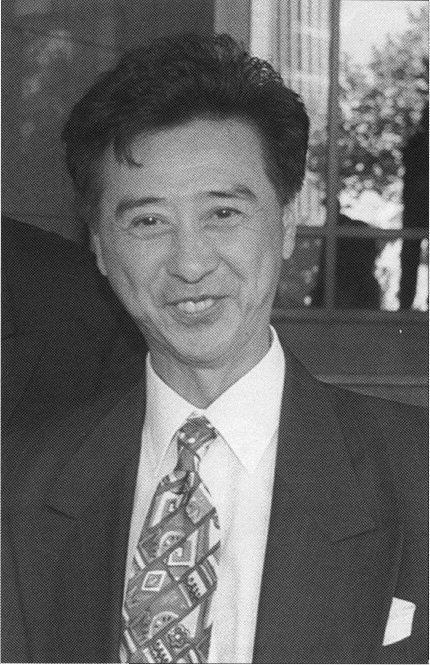
My name is Siu … how do you do?
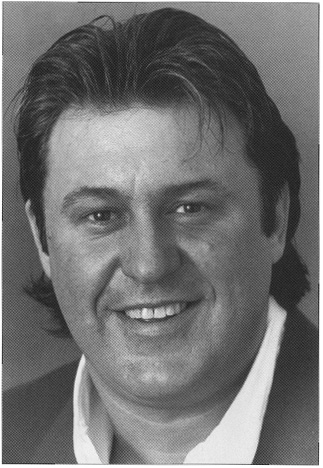
Stephen Millichamp … successful businessman, wrongly accused.
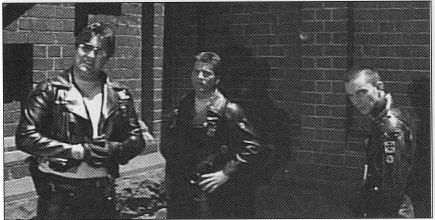
Millichamp on set in the cult movie Mad Max.
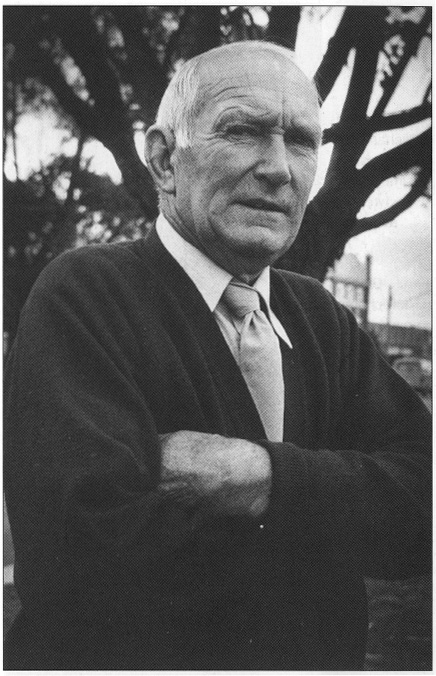
Stanley Livingstone … did he get away with murder?

Margaret Clement … the lady in the swamp.
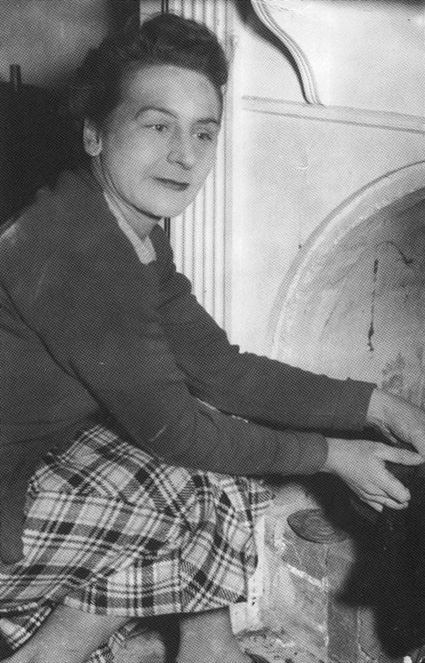
Esme Livingstone … warm hands, cold heart.
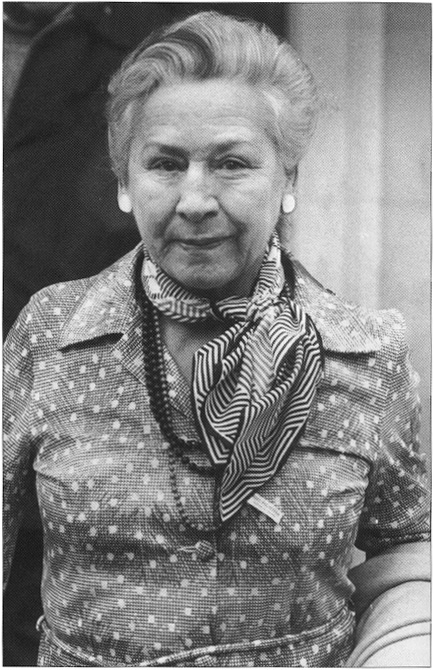
Esme … took her secret to the grave.
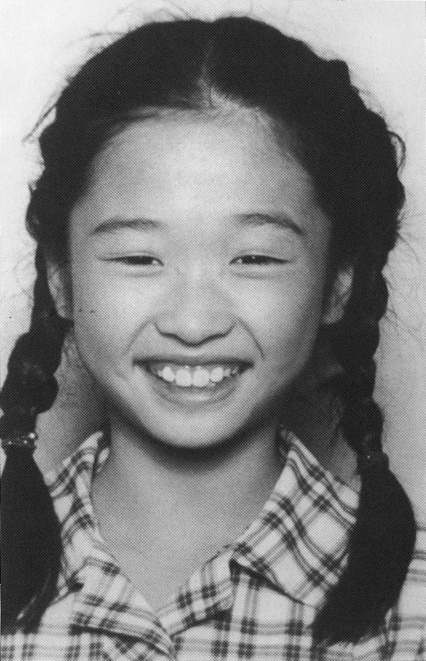
Karmein Chan … abducted from her home and murdered.
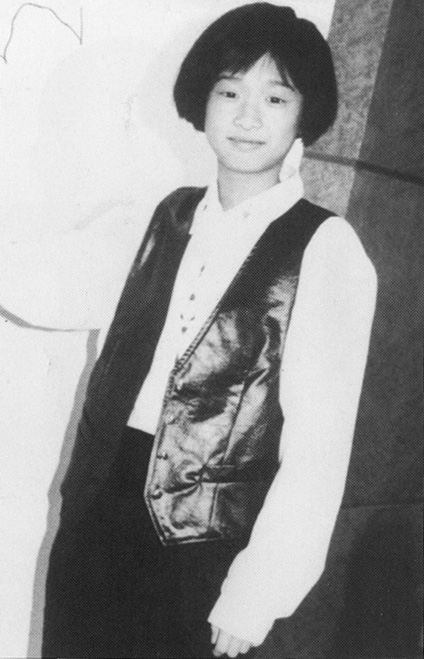
Karmein … the mystery remains.
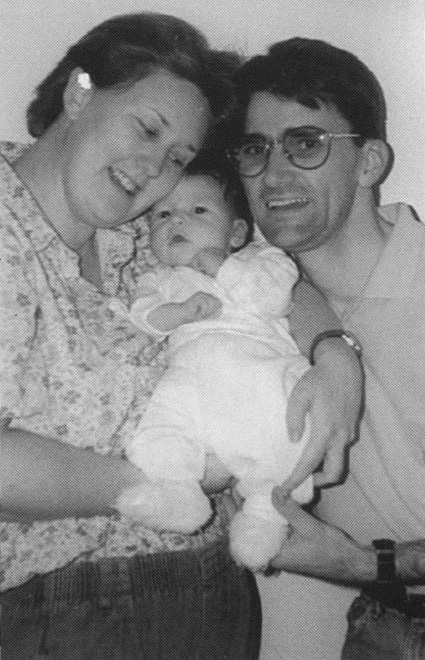
Mark John Smith, wife Nicole, baby Adrian. Happy families …
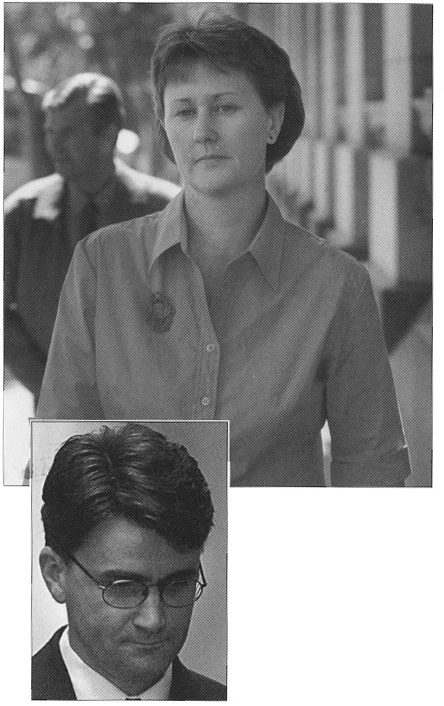
Nicole Taylor … lost her baby and right arm in a fire set by her husband Mark (inset). He was sentenced to 22 years.

… and a bit on the side. Donna Wilkinson: a smile to kill for.
The case sunk with the complainant’s cross-examination. The accused’s lawyers also did not want their client in the witness box, for tactical reasons. Millichamp is a huge man and they did not want him compared physically with the young woman who made the complaint.
In his final address to the jury, Judge Dyett told them that it would be dangerous to convict Millichamp on the evidence of the woman who said she was raped, and of her friend who was on the bed at the time of the alleged assault.
There was precious little left in the prosecution case for the jury to consider.
It took 40 months to bring Millichamp to trial. It took a jury less than four hours to find him not guilty. On 1 February, 2001, it was finally over.
Police sources estimated the investigation and subsequent legal action, including a fourteen-day County Court hearing, cost more than $500,000.
Because Millichamp has been successful in business he was not eligible for legal aid, and as he was committed for trial he had to pick up his own legal fees – estimated at more than $200,000.
It is believed he was forced to re-mortgage his house to pay the bills.
The question remains whether the case should have been prosecuted in the first place. The police and the trial judge certainly had doubts about the case, and yet it was still dragged out in a very public and expensive trial, that left all those involved worse for the experience.
McGuire and Quartermain, both parents of young children, were left bruised from being dragged into an event that was not of their making. Millichamp has lived with the fear of up to 25 years jail, the shame of being accused of rape and a massive legal bill. The complainant was left humiliated – accused of lying and being forced to sit in a court as strangers examined semi-naked photographs of her.
No one was a winner – except, as usual, the lawyers.
A BUSINESS associate of Millichamp’s, Greg Cook, said, ‘He hasn’t spoken much about it, but you can tell he has been stressed to the max.
‘He is a happy-go-lucky bloke, but this has knocked him about. He has had trouble sleeping and it has had to be on his mind all the time.’
Another friend said, ‘He has really pulled his head in over this. He is really bitter about what has happened.’
Millichamp, who has sold out of his interests in hotels and has adopted a lower profile, has been reluctant to talk about what had happened. But he did say afterwards, ‘I should never have been charged and this should not have got to court. I cannot understand how the interests of justice could be served by what has happened.’
He said he was embarrassed by the publicity surrounding his private life. ‘I have received widespread media coverage for all the wrong reasons, but I am determined to get on with my life.’
Stephen Millichamp doesn’t want to be a playboy any more.
He has told friends he will marry his long time girlfriend who has stuck with him during the controversy – although their relationship has been strained by the investigation and trial.
They wanted a giant celebrity wedding in early 2001, but were forced to change their plans because of the trial.
He has had enough of being in the limelight.